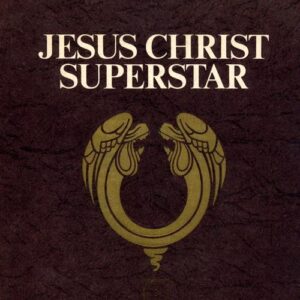
Keith McCray
SUPERSTAR
- ,
- , Articles, Featured, Top Stories
In 1980 the NFL saw the Cleveland Browns have several games decided in the waning moments of games. Some they won, some they lost. Just looking at the team’s 11-5 record and the nickname “Kardiac Kids” is a little puzzling. Further investigation shows the Browns facing a third and 20 from the Packers’ 46 yard line with 16 seconds left, QB Brian Sipe completes a pass to Dave Logan for the winning touchdown, Browns 26, Packers 21. In another game Sipe and company fight back from deficits of 10–0, 20–7, and 26–14 to defeat the Steelers in Cleveland as Ozzie Newsome hauls in the winning catch with a few minutes to play, Browns 27, Steelers 26. Later in the season with the Browns seeking their first ever win at Pittsburgh’s Three Rivers Stadium, the Browns are once again denied, this time on a Terry Bradshaw to Lynn Swann touchdown with eleven seconds left. It marks the Browns’ 11th consecutive defeat at Pittsburgh, Steelers 16, Browns 13. In a game known to Vikings fans as the “Miracle at the Met”, the Browns relinquish a 23–9 lead with only 7:15 remaining. The game is probably most remembered for Browns Safety Thom Darden’s deflection of Tommy Kramer’s “Hail Mary pass”, which is caught by Ahmad Rashād as time expires, Vikings 28, Browns 23. Needing a win to secure the Central Division title, the Browns hold off the Bengals 27–24. Don Cockroft’s game-winning field goal comes with 1:25 left to play. Browns 27, Bengals 24. Without knowledge of the late dramatics “Kardiac Kids” means little.
In 1969 the Mets and Cubs engaged in a series of heated contests through the summer—with the Mets usually coming out on top—but it did New York little good in its goal of chasing down the Cubs. By mid-August, Chicago maintained a commanding 9.5-game lead on the Mets, and the September sage factor purely favored the Cubs, an established team with proven stars compared to the Mets’ talented yet relatively green young guns. And besides: These were the New York Mets, who never knew from anything but last place, right? Like a blindsiding nighttime tornado, the Mets swept through the rest of the regular season schedule and spun the Cubs around onto their rear ends. New York won 38 of its final 49 games—including two more crucial victories over the Cubs in early September—to help spark a ten-game win streak and surpass Chicago in the standings.
The laughingstocks of baseball for much of the 1960s, the Mets perform a rapid and dramatic turnaround, capturing the hearts of fans everywhere with an eye-popping World Series performance against the Baltimore Orioles. The New York Mets earned the nickname, “The Amazin’ Mets” but it means little without knowing the full story.
The other night a network aired a live musical play, “Jesus Christ Superstar”. I am sure it was a nice show if you like that stuff. One review I read made note that “religious hardheads” complained there was no resurrection. I guess I am a “religious hardhead”. The resurrection is what completed Superstar. That is why John did not stop at chapter 19. The empty tomb shows the Superstar. The last minute wins earned the title “Kardiac Kids”. The late season surge that culminated in a World Series victory earned the title “Amazin’ Mets”. Lee Strobel an American Christian author and a former investigative journalist said, “In short, I didn’t become a Christian because God promised I would have an even happier life than I had as an atheist. He never promised any such thing. Indeed, following him would inevitably bring divine demotions in the eyes of the world. Rather, I became a Christian because the evidence was so compelling that Jesus really is the one-and-only Son of God who proved his divinity by rising from the dead. That meant following him was the most rational and logical step I could possibly take.”
because, if you confess with your mouth that Jesus is Lord and
believe in your heart that God raised Him from the dead, you will
be saved. – Romans 10:9
SportsFaith is a Christ centered ministry that is focused on introducing people to God through sports. Our prayer is that God uses us to build a better team for Him. He has already provided the playbook (Bible), SportsFaith simply uses articles, interviews, video, audio, and impact events to share His message and make an impact that is positive and God honoring. Visit often, share our mission and help us make sure God is always calling the plays!
- 111-000-1111
- 416 George St, De Pere
- 00:00 - 00:00
Get Sportsfaith Sent Directly To you Faster!
Sign Up Today
© 2020 All Rights Reserved



